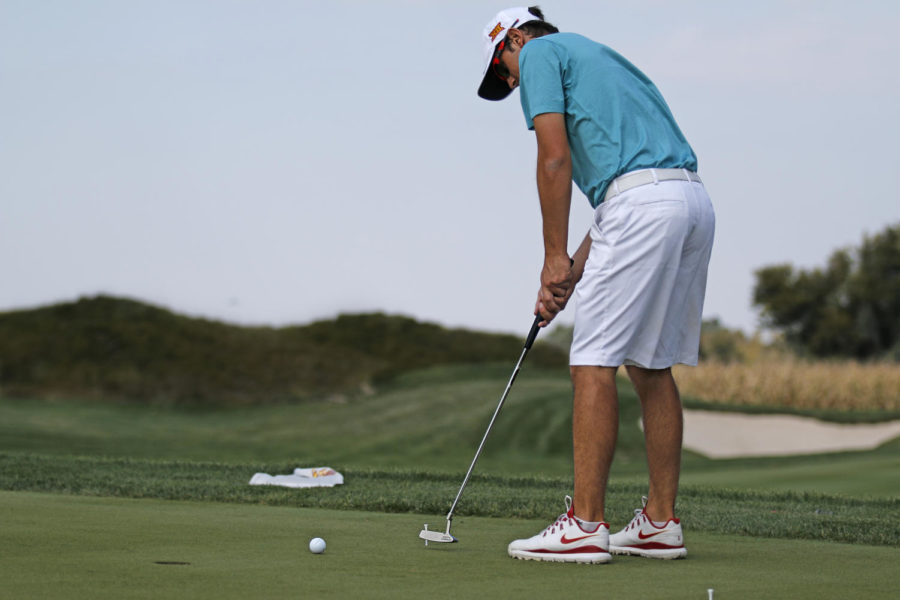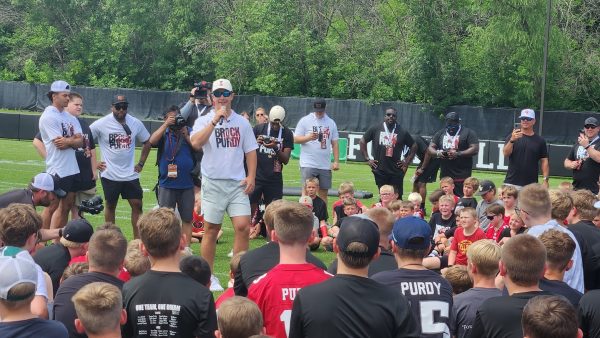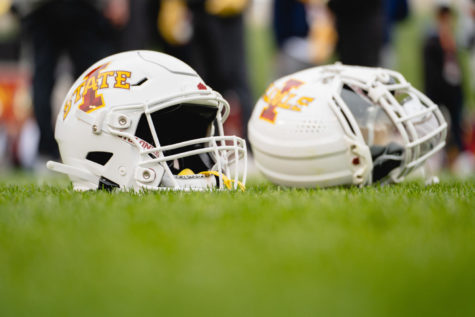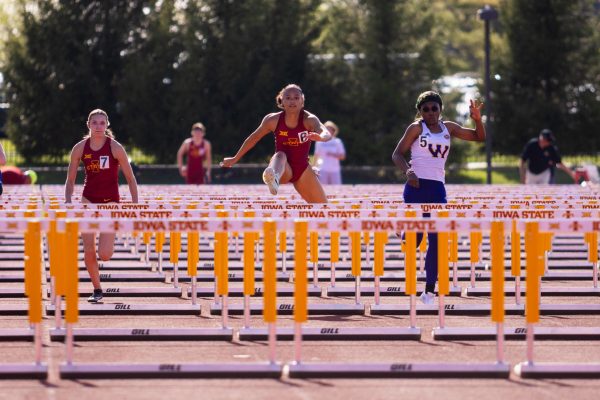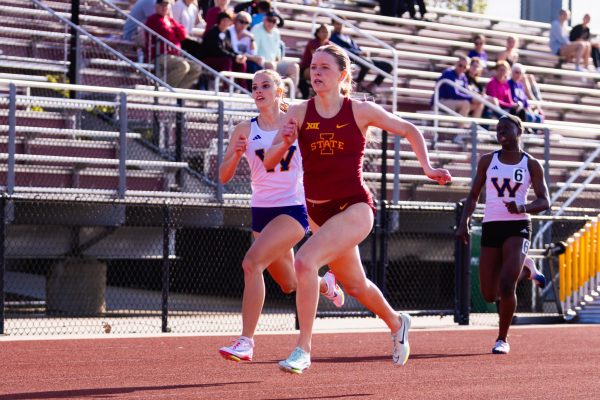ISU international golfers reflect on transition to the U.S.
Richard Martinez/Iowa State Dail
Scott Fernandez, senior from Spain, warms up for practice at Iowa State’s golf performance facility south of campus. Fernandez is one of 10 international students on the ISU men’s and women’s golf teams.
October 27, 2014
For an international golfer, the decision to play college golf at Iowa State has its perks.
Free education, free gear and the opportunity to prove one’s self against the world’s top amateurs all await a prospect if he or she signs on the dotted line to become a Cyclone.
But what is not featured in the recruiting pitch is the reality that thousands of miles will separate a player from his or her family. It does not mention the doubts that can come with a life-altering decision.
“It definitely takes a special type of person that is willing to move across the world to be away from their family and friends and support system, to really be willing to do that and to understand the opportunity they have to earn a college degree here in the United States and get that college golf experience,” said ISU men’s golf coach Andrew Tank.
For Ruben Sondjaja, as well as nine other international golfers at Iowa State, occasional feelings of homesickness and doubt can creep into their minds.
“I sometimes feel like, ‘Is this really what I should be doing?’” said the sophomore from Sydney. “Maybe I should go home and just play golf because it’s quite tough with all the school and all the golf and everything that has to do with being a part of the golf team.”
Unlike in the U.S. where academics and athletics are intertwined, international golfers face a difficult decision if they are to stay home: Forego college for a risky endeavor into professional golf at a young age or attend school and put golf on the back-burner.
While players are quick to point out that coming to the U.S. was likely the best option for their future, it is one that can weigh on them long after the decision is made.
“It’s part of the process that I tell all of the freshmen,” Tank said. “‘You’re going to get homesick. It’s going to happen. But when you do, come talk to me, come talk to your teammates and we’ll work through it.’”
The support system Tank talked about is strengthened by the fact that in no way are international players alone in their journey.
Out of the 14 golfers on the men’s and women’s programs, 10 hail from outside the United States, creating two of the most diverse athletic teams at Iowa State. With a locker room that resembles the United Nations, players have the luxury of leaning on others who know what they are going through.
“I think having a lot of international people on the team, people from the same situation, helps a lot,” said Sam Daley, a member of the men’s golf team from Wynnum, Australia. “If there was just one international person on the team and the rest were Americans, no offense to the Americans, but sometimes they can’t relate to what we’re going through.”
For senior Chonlada Chayanun, member of the women’s golf team from Nakhonratchaslma, Thailand, her coaches and teammates, both American and international, have provided her with a family environment that is so dearly missed.
“All my teammates and coaches help me feel at home,” Chayanun said. “Any time I have a problem or if there’s a difference between other people I will talk to [assistant coach] Pina [Gentile] or Coach [Christie Martens], and they can be like parents for me, they just make it like family.”
Players and coaches said they make a concerted effort to provide a familial environment for players, but some American players have taken it a step further by making their teammates a part of their family in Iowa.
“Scott [Fernandez] last year came up with our family, and we had Thanksgiving with him just because Ames over Thanksgiving is pretty dead,” said redshirt junior Collin Foster, a native of Waukee, Iowa. “I think the little things like that make it easier for them.”
On the women’s side, players have found a home away from home with former Cyclone golfer and Jewell, Iowa, native Katie Gustafson, who graduated in May.
“I’m really close to her and both her mom and her dad, they’re like my family here,” said Cajsa Persson, who is from Jonkoping, Sweden. “That means a lot to me when I don’t have my family around.”
Though adjusting to life in Ames comes with its challenges, several players said they could envision living in the States after graduation, even if golf is no longer a part of the equation.
“I can definitely picture myself living in America,” Sondjaja said. “If golf works out or it doesn’t I can definitely picture myself working in a business position in America or playing golf and living in America. I really like it over here, and I think I’ve settled in quite well.”
In his four years at Iowa State, Foster said that though his teammates will go through bouts of homesickness, he believed his teammates are proud to be Cyclones.
“They’re pretty much happy to be here. Occasionally they’ll say they wish they were home for this or that, but for the most part they’re all-in here,” Foster said. “They’re happy to be here, they’re happy to represent the Cyclones on the golf course, and I think the school and the team is better for it.”

